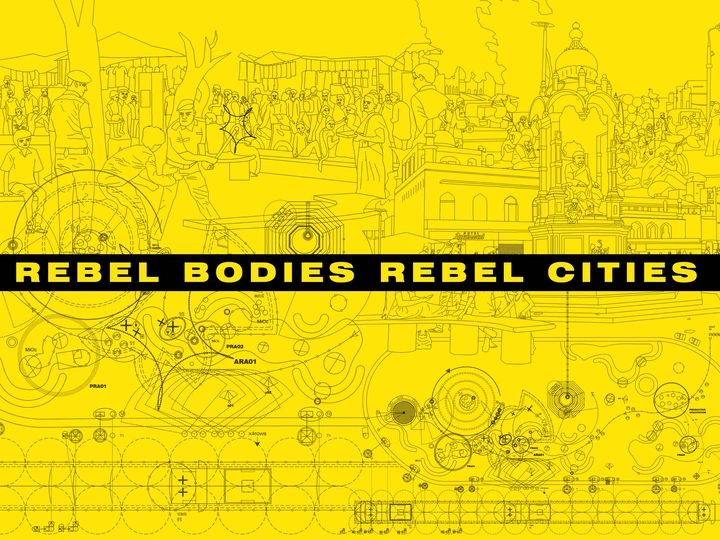Rebel Bodies Rebel Cities

Victor Cano-Ciborro is an architect who holds a Ph.D. in Architecture, awarded with distinction cum laude and the Outstanding Doctoral Thesis Prize for 2021-2022 from the Polytechnic University of Madrid. He has been a Future Architecture Platform fellow, a predoctoral visiting researcher at the University of California, Berkeley, a postdoctoral researcher at The New School / UPM, and a Marie-Curie fellow at Brown University. He has served as a lecturer at ETSAM and the Architectural Association, and has affiliations with CEPT University (Ahmedabad, India), the University of the Americas (Quito, Ecuador), and the European University of the Canary Islands. Additionally, he has conducted workshops and lectures at various institutions, including PUC, UV, USS, and USACH in Chile, UCSM in Arequipa (Peru), CanActions in Kyiv (Ukraine), and EPFL in Switzerland.
His research focuses on critical and operative counter-cartographies that reveal resistances in conflict situations and territories through the subaltern bodies that construct them. To date, he has published in fifteen indexed journals, with notable mentions in CITIES, ARQ, INVI, and EGA. He was a co-founder of the 'Arquitectura Subalterna' radical spatialities group. His work has been exhibited at the 20th Biennial of Architecture and Urbanism in Chile and the Biennale Architettura in Venice in 2016 and 2018. He is also a co-author of the book "Rebel Bodies Rebel Cities" (CEPT Press, 2022).
[“What is a rebel? A [body] who says no: but whose refusal does not imply a renunciation.” Albert Camus]
"Rebel Bodies Rebel Cities" is a project aimed at revealing the spatial practices constructed by those rebellious bodies that question the imposed forms of habitation by the State apparatus through formal planning and urban regulations. In the growing complexity of urban spaces, these dissident or rebel actions, rather than exceptions, are the norm, making their visibility and analysis highly relevant to prevent their constant criminalization in favor of drawing attention to new urban policies sensitive to the realities, scales, needs, and desires of their inhabitants. The goal is to understand architecture and urbanism not only through forms and objects, but through forces (beyond those applied by power) and human and non-human bodies (beyond the normative white man).
RBRB focuses on identifying those rebel actions and bodies that, although usually hidden, invisible, and unrecognized by architects or urban planners, challenge the city's status quo and the tired dualities of formal/informal, private/public, or legal/illegal.
This project is based on the use of 'counter-cartographies' capable of showing how normative spaces are organized, negotiated, and inhabited beyond the norm. Here, drawing becomes a fundamental tool for understanding not only the complexity of physical space but also all those intangible spatial dimensions that generate such 'rebel architectures': How is tension, surveillance, or dependence drawn between bodies? And between bodies and architectures? In these counter-cartographies, there are no innocent lines. Everything holds meaning. Representation is neither neutral nor apolitical. Counter-cartographies recognize, make visible, and encourage the spatiality of the rebel body, but they can also be part of the development of sensitive processes that reflect and act upon the specificity of the context rather than resisting it.